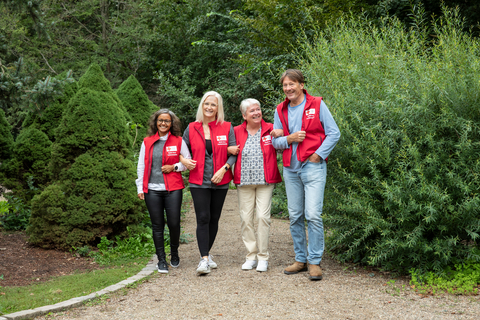
Why? The rationale
There is a huge opportunity to improve access to treatment for NCDs, because the gap in provision is so large. The development of guidelines for care would lead to a more coordinated and standardised approach across different agencies, focus research appropriately, improve continuity of treatment offered to people living with NCDs, and encourage the provision of
A focus of the guidelines should be building capacity of existing staff, with new training in NCDs in humanitarian emergencies and be based on a practical approach task shifting away from doctors towards nurses and community health workers: ‘Why are nurses just an assistant to the doctor? There are so many things they could easily do!’ (Bootcamp participant). The guidelines should also contain a section on how to adapt and prioritise care in different humanitarian settings. Specific guidelines could also give donors and the private sector a clear rationale for investing in NCD treatment.
Discussion
Operational and contextual challenges – security issues, devastated infrastructure and disruption to supply chains – have serious repercussions for access to NCD treatment in humanitarian settings. However, these are usually beyond the control of humanitarian and health organisations; instead, the discussion centred on technical challenges, because ‘within the technical area, we can change things!’ (Bootcamp participant). There is a real need for a standard but flexible set of guidelines
“Good intentions are not good enough in humanitarian settings”
Guidance on how to implement the guidelines will be needed: ‘Inventing the guidelines is the easy part: implementation is the difficult part!’ (Bootcamp participant). And, while the guidelines should be flexible enough to be adapted to different circumstances, they should not be so flexible as to no longer be meaningful and effective. Another specific policy ask was also discussed: to improve health-seeking behaviour by including communities and people living with NCDs in the development of health promotion and service design. Stigma, discrimination and cultural barriers in accessing services can all be addressed through thoughtful, co-created design of programmes.
“The guidelines would provide the means for agencies and ministries to provide a more consistent quality of care for our patients”
How? Campaign ideas
The campaign would focus on advocating for guidelines on NCD care in humanitarian settings with WHO as the agency responsible for setting standards and developing technical guidelines in health. A central part of the campaign would be to demonstrate the inconsistency in current NCD care practice in different humanitarian settings as well as the low standard of care in humanitarian settings in comparison with more stable settings.
Ideas for campaign elements include:
- A video containing short interviews with individuals – both medical staff and patients – from different humanitarian settings to illustrate the variations in practice and capacities, i.e. patients would be asked where they access insulin and doctors would be asked how to diagnose diabetes and what kind of protocols they use.
- Through research, the contrast between NCD complications in stable and in humanitarian settings could be explored and highlighted.
- With diplomatic efforts member states should be encouraged to ensure that WHO prioritise the development of guidelines, for example through statements at the High-level Meeting on NCDs (September 2018) and at the World Health Assembly in 2019.